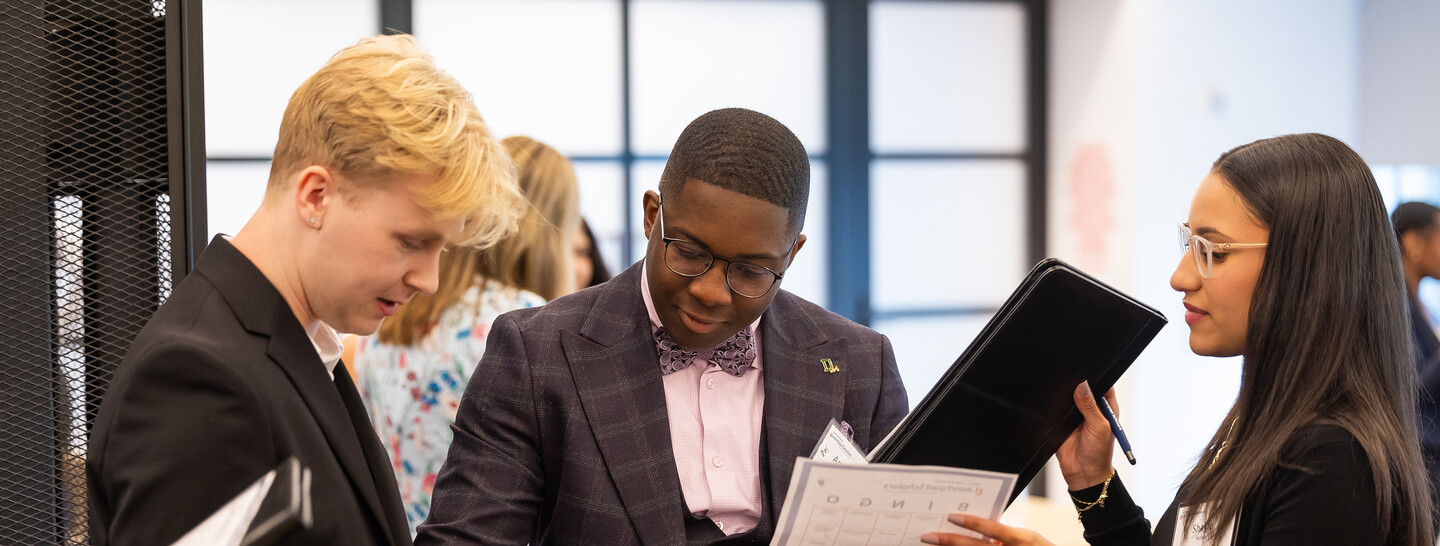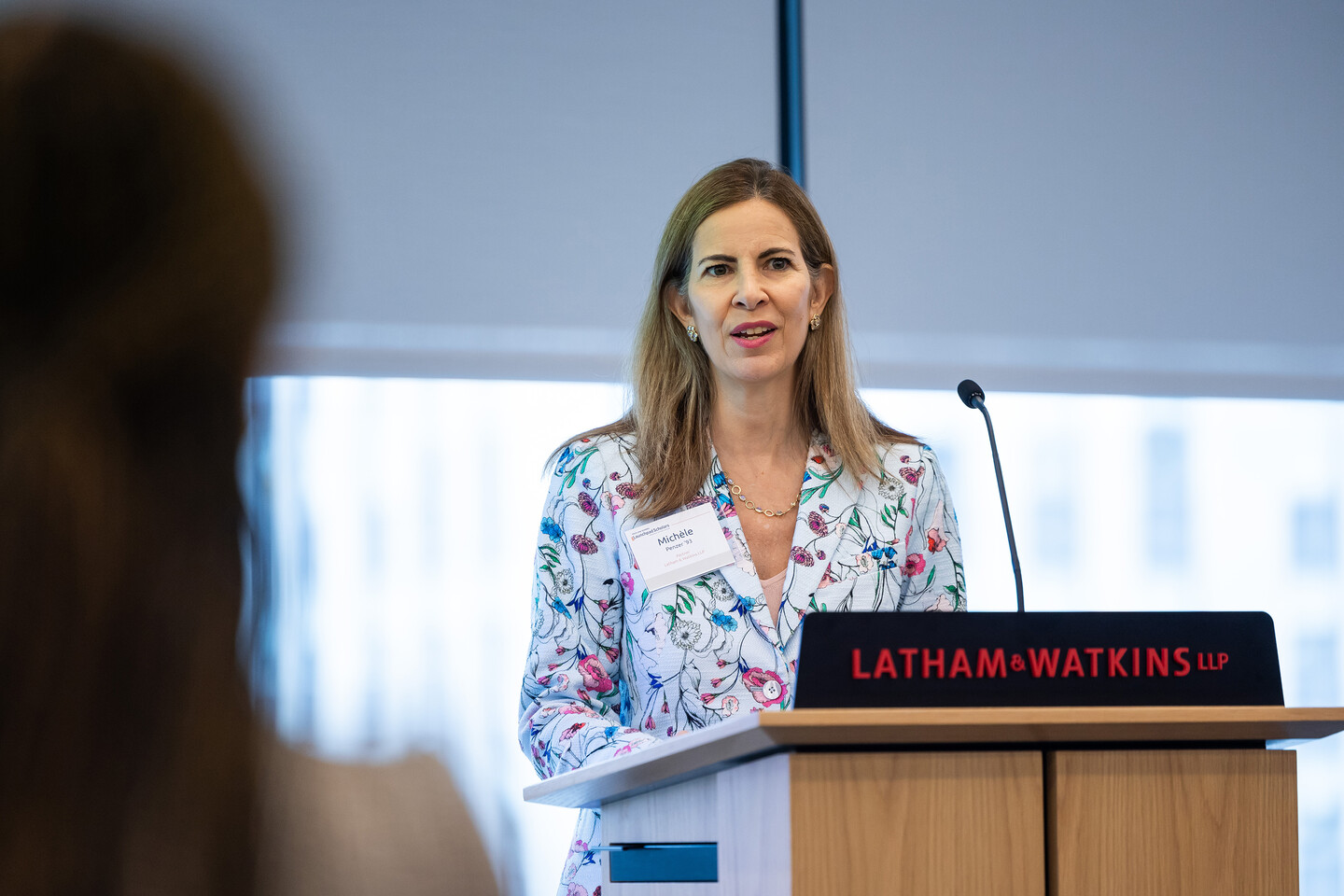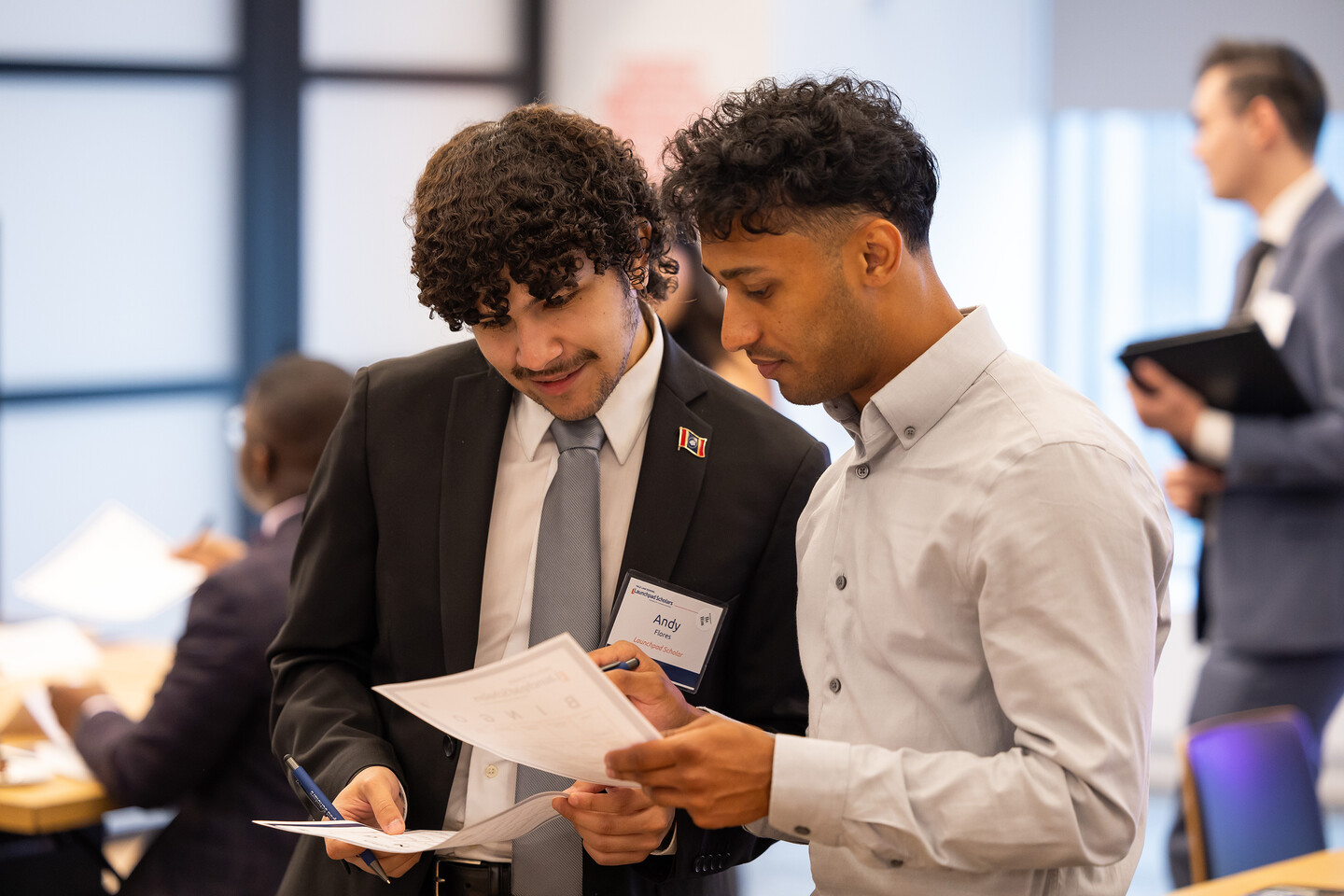This year’s new Launchpad cohort has already benefited from the program.
Dipita Das, a 2024–25 Scholar from New York City, said that the program’s detailed guidance on LSAT preparation has been enormously helpful.
“It was extremely difficult for me to study for the LSAT during college,” said Das, who provided financial support to her family by working several jobs during school. “I was never in a single place, and sometimes not even in the same borough, for more than a few hours a day. Until Launchpad, no one sat me down and helped me visualize LSAT prep.”
So far, the LSAT metrics from the first cohort are impressive, according to Assistant Director of Admissions for the Launchpad Scholars Program Catherine Feuille ’22.
Scholars from the first year who have taken an official LSAT saw a median score improvement of over 15 points on their diagnostic exams, with some Scholars’ scores improving by as much as 30 points; five Scholars scored over 170.
“This kind of improvement is something to celebrate since it will allow the Scholars, who have already excelled in so many ways, to demonstrate their full potential and maximize the opportunities available to them,” said Feuille.
Having that kind of support helps smooth the path for Scholars like Das who sometimes face obstacles that stand in the way of their dreams. Growing up in low-income neighborhoods in New York City after her family immigrated from Bangladesh, Das said she was exposed at an early age to inequities and discrimination in her community. That spurred her interest in the law.
“I saw how the legal system can be used as a weapon for ostracization of marginalized communities — as well as a tool for stability,” said Das, who went on to attend Fordham University and is now a litigation paralegal. “Those experiences made me learn advocacy as a survival skill.”
Associate Dean of Admissions and Financial Aid Miriam Ingber ’04 said the first two cohorts of Launchpad Scholars have been impressive and she is excited to watch the continued growth of the program.
“We were absolutely amazed by the talent and enthusiasm of the 2023–24 cohort, and this year’s cohort has been just as exceptional,” she said. “It’s been an incredibly positive start to the program and we are excited to build on this success in the future.”
“We are thrilled to see the continued success and growth of the Launchpad Scholars Program in its second year,” said Michèle Penzer ’93, global recruiting committee chair at Latham & Watkins. “Partnering with Yale Law School on this initiative allows us to support and empower talented individuals from underrepresented communities, providing them with the tools and mentorship needed to excel in their legal careers. We are proud to contribute to a program that not only broadens access to legal education but also enriches the diversity and strength of the legal profession.”
The key elements of the program remain the same in the second year. Scholars gain one-on-one mentorship, LSAT preparation, and step-by-step guidance through the application process. In June, they visit Yale Law School for a weeklong intensive program including mock classes, application workshops, and visits to legal employers.
Added to the docket for the second year, Feuille said, is a yearlong focus on drafting and workshopping personal statements and other application essays; quarterly virtual social events; and extended LSAT support for those who may need a longer timeframe to succeed on their exams.







